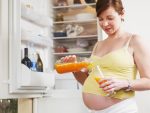
A “first of its kind” study analyzed whether babies of mothers who consumed more artificially sweetened drinks were more likely to be overweight. Although an in-utero connection has been seen in animal studies, this is the first time the potential effect has been examined in humans. The results are intriguing but also very strange—they suggest that women who drink more artificial sweeteners are more likely to have high BMI or overweight babies; the findings aren’t immediately intuitive and have left quite a few heads scratching.
Artificial Sweeteners and Baby Weight Study: Summary
- The study used data from the Canadian Healthy Infant Longitudinal Development (CHILD) study and looked at 3,033 pregnant women, of which only 2,686 participated in the final BMI analysis. Complete data was only available on 2,413 parent-child pairs
- Dietary assessments were conducted during pregnancy and rates of consumption of artificially sweetened and sugar sweetened beverages were taken
- The child’s BMI was taken at birth and at a one-year follow-up
- Known risk factors for childhood obesity like a smoking or overweight mother were controlled for
- 29.5% of mothers consumed artificially sweetened beverages while pregnant, 5.1% of whom reported drinking these dailies
- 77.2% of the mothers reported consuming sugar sweetened beverages while pregnant, 23.4% of whom reported daily consumption
- Of the infants, 5.1% were overweight during the one year follow-up, though all had normal BMI at birth
- Artificially sweetened beverages showed a connection to higher BMI, with the children born to the “once a day” group having a twofold higher risk of being overweight
- The artificial sweetener association was only found among male infants
Breaking Things Down
Since this is the first human study to look at artificial sweeteners and overweight babies, it’s important to remember that no firm conclusions can be drawn without replication. However, that doesn’t mean certain observations can’t be made:
- The male-only effect seems to fit with other instances where prenatal or postnatal exposures (tobacco, etc.) seem to affect boys more than girls
- The male-dominated effect is also consistent with past animal studies
- The association between daily artificial sweetener consumption and the highest risk increase suggests some form of dose-response relationship
Where Things Get Weird
Although these findings have a plausible basis and seem to show certain characteristics that make a link possible, there are some definite oddities here that were noted by the authors:
- The children’s BMI at birth was normal, so an in-utero effect was not considered as likely
- Although artificial sweeteners can be transmitted through breast milk, higher BMI at follow-up was associated with less frequent breastfeeding, not more
- No correlation between sugar sweetened beverages (i.e. the ones with more calories) was found
This presents an unusual picture. The data shows a connection between mothers who consume more artificially sweetened drinks and higher BMI infants, except the sweeteners don’t seem to do anything to the fetus in-utero. The most likely way sweeteners could impact a newborn’s BMI is through breast milk, but more breast feeding is correlated to lower BMI instead. Lastly, whatever connection there is may be rooted in some metabolic effect that artificial sweeteners have that regular sugar doesn’t, since there was no observed link to genuinely sugary drinks.
There are, of course, weaknesses with the study like there are in any piece of research. Aside from the inherent issues with dietary surveys, the inability for the study to distinguish between different types of sweeteners, the fact that the food frequency questionnaire used has not been validated for beverage-specific use, and the lack of a clear best method for measuring baby weight are all possible confounders. In light of the inverse breast feeding correlation that was seen, an inability to account for the use of baby formula may be appropriate to add as well.
Bottom Line
- The study is the first of its kind to look at artificial sweeteners and baby weight, so everything needs a grain of salt until replication is done
- There is definitely an observed connection between artificial sweeteners and higher body weight infants, though how directly the two are tied is unclear
- Being overweight as a baby does not automatically translate into childhood obesity, though this is outside the focus of the study
Source:
Azad, M., et. al., “Association Between Artificially Sweetened Beverage Consumption During Pregnancy and Infant Body Mass Index,” JAMA Pediatrics, 2016; 10.1001/jamapediatrics.2016.0301.













